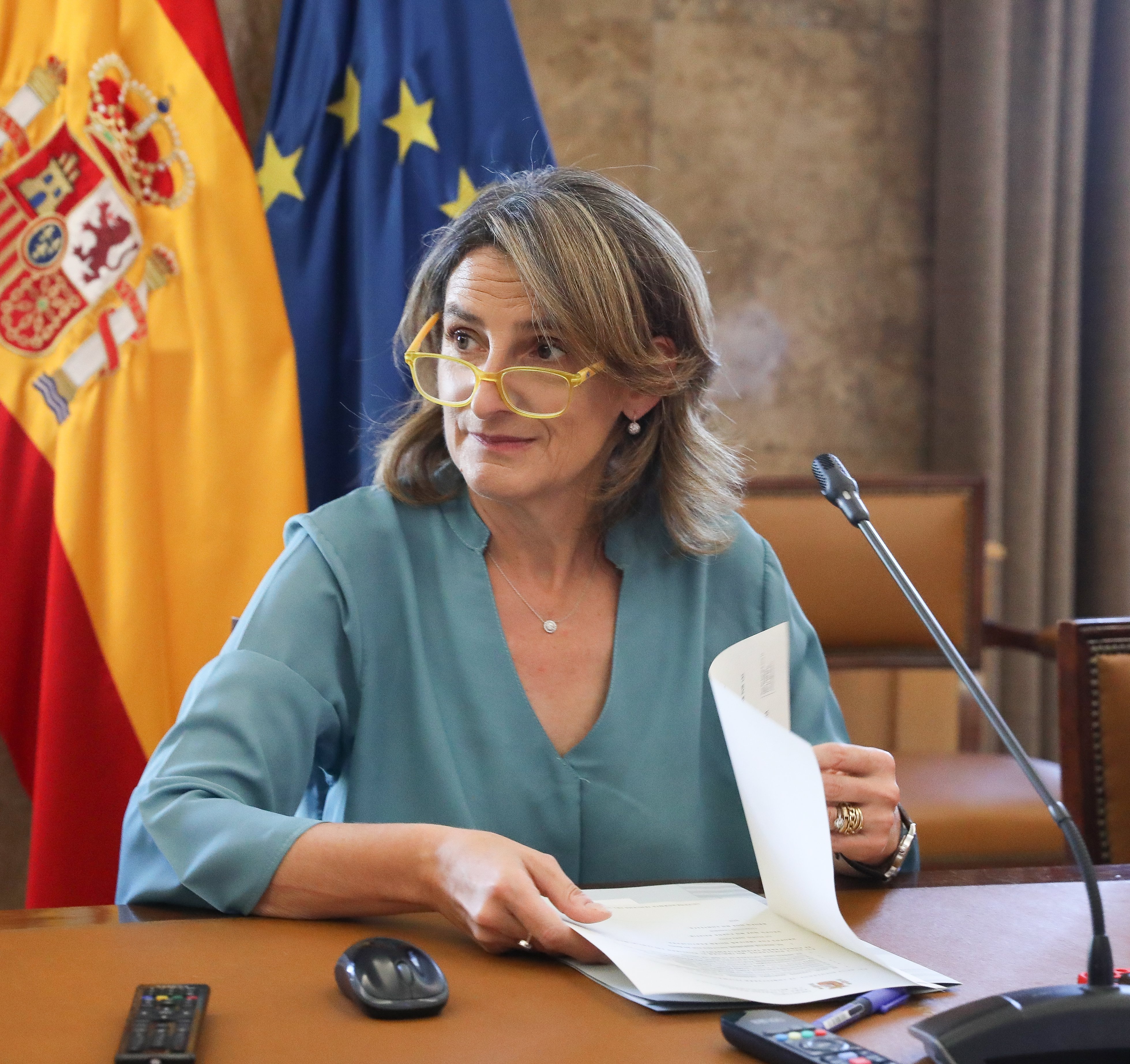The Spanish government has taken a step back and made a correction. The minister for the ecological transition, Teresa Ribera, has announced this Friday that bars and restaurants will be able to set air conditioning temperatures in their premises to "around 25 degrees", taking into account the recommendations of labour legislation, a change from the 27 degrees Celsius set as the minimum temperature for air-con in a wide range of spaces of public use, provided for in the Spanish executive's decree on energy saving and efficiency measures approved this week. The minister clarified that the figure of 27 degrees will be applied "with flexibility" and mentioned the cases of nightclubs, kitchens and gyms, which need to maintain temperatures at different levels to other spaces, for example - she said - a bookstore.
"You can't ask workers whose conditions involve significant physical exercise to not apply the conditions guaranteed by labour laws with respect to maximum and minimum temperatures," said Ribera in an interview with the radio station Onda Cero. For this reason, businesses and hospitality establishments will have to give justification if they do not apply the 27 degree limit on the thermostat, a flexibility that will be incorporated into the decree law to protect the occupational health rights of workers. Ribera affirmed that this first package of measures is designed for buildings of public use "with flexibility" according to the type of economic activity and the work carried out there.
Thus, she distinguished sedentary jobs, like working in an office, from active jobs, such as the activity of workers in a restaurant. "The decree law itself incorporates the qualifier that in the case of spaces where workers have to move and carry out physical exercise, the norm must be applied with the appropriate flexibility", the minister clarified about the thermostat settings. The minister insisted that the decree on energy saving and efficiency measures "is to be complied with" and represents an effort that is "reasonable". She said that it "respects working conditions which, in all cases, must be borne in mind", while at the same time, affirming that the Spanish government will not change its mind on the measures.
In a second interview this Friday, with Catalunya Ràdio, Ribera stressed that the executive does not intend to apply energy restrictions to homes. "We don't want to impose restrictions inside homes, although there will be recommendations," she told the radio broadcaster, adding: "Many of the recommendations are well-known, and refer to, for example, awnings."
Universities, climate shelters
In the context of this crisis, the universities must play a key role in reducing energy spending. This has been explained by the Spanish universities minister, Joan Subirats, announcing a meeting to be held with the rectors of the tertiary educational centres throughout the State. Specifically, this meeting with the Conference of Rectors of Spanish Universities (CRUE) will take place at the end of August or beginning of September, before the start of the academic year, and it will address energy saving in educational centres. In an interview with public broadcaster RNE, the minister explained that "measures will be set" for temperatures within university centres "both in winter and in summer" and will thus achieve the savings and "energy efficiency" which other sectors are already applying, all in response to the plan approved in Brussels for gas expenditure to be reduced across the EU - in most countries by 15%, although in Spain the figure set is 7% on the basis of its reduced integration into the European gas networks.
For Subirats, universities must have the ability to become "climate shelters", with facilities where people "can go when necessary", apart from installing, for example "more solar panels for renewable energy". "The universities must contribute to the effort that the population is making on this whole issue", he said, referring to the decree approved this week by Pedro Sánchez's government, which limits the use of air conditioning and heating, while also requiring lights to be switched off at 10pm in shop windows and in public buildings if they are not in use, and for doors to have automatic closing systems to economize on energy usage.
Main image: Spain's minister for the ecological transition, Teresa Ribera / Europa Press

